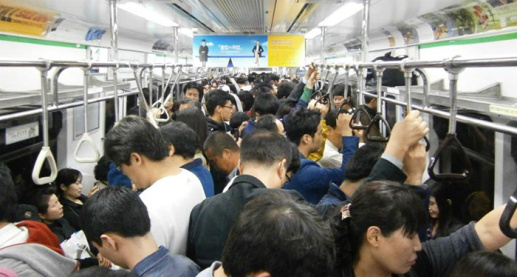
The Japanese government plans to encourage firms to let their employees choose to work four days a week instead of five, aiming to improve the balance between work and life for people who have family-care responsibilities or need more time off to acquire new skills.
The COVID-19 has helped the idea of a four-day work week gain traction since people spent more time at home. Government leaders now hope to convince management that flexible working hours, remote working, growing interconnectedness(相互联系) and a host of other developments can be beneficial if they remain in place even after the end of the pandemic.
“The government is really very keen for this change in attitude to take root at Japanese companies,” Martin Schulz, chief policy economist for Fujitsu Ltd.’s Global Market Intelligence Unit,said. “During the pandemic, companies have shifted to new ways of operating and they are seeing a gradual increase in productivity. Companies are having their employees work from home or remotely, at satellite offices or at their customers’ locations, which can be far more convenient and productive for many.”
Microsoft in Japan instituted a temporary three-day weekend in August 2019, which resulted in a reported 40 percent increase in productivity, according to the company, and reduced electricity consumption and paper printing.
Internet and e-commerce service giant Yahoo Japan Corp. started allowing its employees who need more time off for caregiving to take three days off a week in April 2017. “It has been favorably received in general, with some employees saying that it became easier to match their days off with their children’s activities,” a Yahoo Japan spokesman said.
In proposing four-day work weeks, Japan joins Spain, which is launching a three-year, nationwide, voluntary 32-hour week experiment.
本时文内容由奇速英语国际教育研究院原创编写,未经书面授权,禁止复制和任何商业用途,版权所有,侵权必究!(作者投稿及时文阅读定制请联系微信:18980471698)
1.According to Paragraph 1, we know that_____.
A Japanese pay more attention to people’s life than work
B the Japanese firms is open-minded to employees’ work
C family-care and work are difficult to deal with in Japan
D Japanese employees will have more time to act on their own
解析:选D。D 推理判断题。根据第一段可知,日本政府计划鼓励企业让员工选择每周工作4天而不是5天,旨在改善那些有家庭照顾责任或需要更多时间休息以获得新技能的人的工作和生活之间的平衡。由此推断日本员工今后将拥有更多独立支配的时间。故选D。
2.What are the potential benefits mentioned about working at home?a. It is effective to relieve urban traffic stress.b. Employees can freely change the working hours.c. It will indirectly help reduce the production costs.d. Employees will set up broad and close social contact.
A a; b; c
B a; b; d
C b; c; d
D a; c; d
解析:选C。C 细节理解题。根据第二段以及第四段可知,政府领导人现在希望让管理层相信,一周工作四天,员工会在家会有更多的时间,灵活的工作时间、远程工作、日益增长的相互联系以及一系列其他发展对公司有益,微软日本公司因此使得生产率提高了40%,并减少了电力消耗和纸张印刷。故选C。
3.In the passage, the author proves his/her opinion mainly by_______.
A giving reasons
B listing numbers
C giving examples
D comparing facts
解析:选C。C 细节理解题。根据全文可知,作者为了证明自己的观点,分别例举了日本富士通公司、微软日本公司以及雅虎日本公司的案例加以说明,故选C。
4.What can we infer from the passage?
A Yahoo Japan Corp.’s working arrangements made the staff feel warm.
B Spain set a good example in proposing four-day work weeks for Japan.
C Fujitsu Ltd. first responded to the government’s call to adopt flexible working hours.
D The profits of Microsoft in Japan have risen by 40% with four-day work weeks.
解析:选A。A 推理判断题。根据第五段可知,雅虎日本公司于2017年4月开始允许需要更多休息时间照顾孩子的员工每周休息三天,这一做法普遍受到欢迎。由此推断该公司的工作安排让员工感到温暖。故选A。